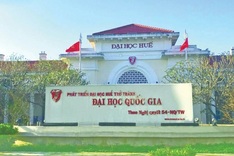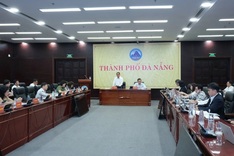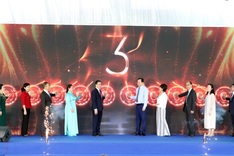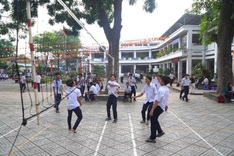Many students who do not initially pass university entrance exams choose in-service training programmes as an alternative and Da Nang has decided not to recruit them.
Education experts have criticised Da Nang’s recent plan not to recruit these types of graduates for state agency positions.
 |
| All degrees in the Vietnamese education system have equal value |
The 2011 Personnel Development Plan was submitted by the municipal Department of Home Affairs to the 17th People’s Council session on December 1-3.
The plan is aimed to raise quality of cadres. A local official was quoted by Sai Gon Tiep Thi Newspaper saying that even people who have been sent to training courses funded by the city, still cannot find jobs.
In the past, the city has followed recruitment policies focusing on the factors surrounding the degree of candidates. Many local sectors, such as education, have said “no” to in-service training programmes graduates for what they say is a clear difference in the quality of students who immediately enter university after passing exams.
According to the newspaper, Da Nang has high requirements for candidates who want to apply for jobs at state agencies, including degrees from regular training courses, good political biographies and permanent residence books.
However, in reality, due to massive expansion across the country, quality of in-service training programmes in Vietnam are very weak. After failing entrance exams to public universities, many choose to attend such courses to get degrees and then try to work at state agencies.
Strong oppositions from experts
DTiNews received comments from several education experts in Vietnam regarding Da Nang’s policy on in-service training programme graduates.
Professor, Academician Pham Minh Hac, Former Minister of Education and Training
Refusing to accept in-service training programme graduates at state agencies is unlawful. Quality of in-service training programmes may be lower than those of regular training, however, under the laws, value of regular and in-service training student degrees are equal to each other.
Recruiters should not depend on degree classification, but should be fair in selecting staff. However, the education sector should enhanced management over in service-training students which have up to 10,000 students compared to just 3,000 regular training students.
Professor. Dr. Phan Cong Nghia, Deputy Director of the National Economics University
It is unreasonable for Da Nang to recruit regular students only for jobs with state agencies. Regardless of graduates from in-service training programmes or regular graduates, if they meet all recruitment requirements, they must be admitted.
The recruitment is the right of employers, but they should not say “no” simply because a working student seeks training. The recruitment must be based on a candidates’ real capacity, not their degrees.
Phan Manh Tien, Deputy Head of the Ministry of Education and Training’s Higher Education
Under the Education Law, all degrees in the national education system have equal value. Degrees of a student who graduates from universities in a region have the same value with those of major universities.
Many recruiters do not admit in-service training programmes in an effort to raise their staff capacity. This is also easy to understand because quality of in-service training programmes remains limited. However, not all in-service training programme students have weak capacity and all people who have regular training degrees don’t have a higher capacity.
To increase the recruitment quality, employers should consider their way of selecting candidates, not classifying degrees. It is necessary to have comprehensive tests to choose employees.
Professor. Dr. Pham Tat Dong, Vice Chairman of Vietnam Study Promotion Association
In reality, many people have made great contributions to many sectors thanks to their self-study. We should not limit in-service training programme graduates from the training system when failing to control its quality. This is opposite to the state’s study promotion policies. Da Nang should base its policy on real capacity of candidates, not their degrees. We should follow the world common trend that opens opportunities for people to study. When public universities cannot meet all regular training demands of people, in-service training programmes can help save the state budget.
In-service training programmes have been expanded but lack proper state management, resulting in its limited quality.




















